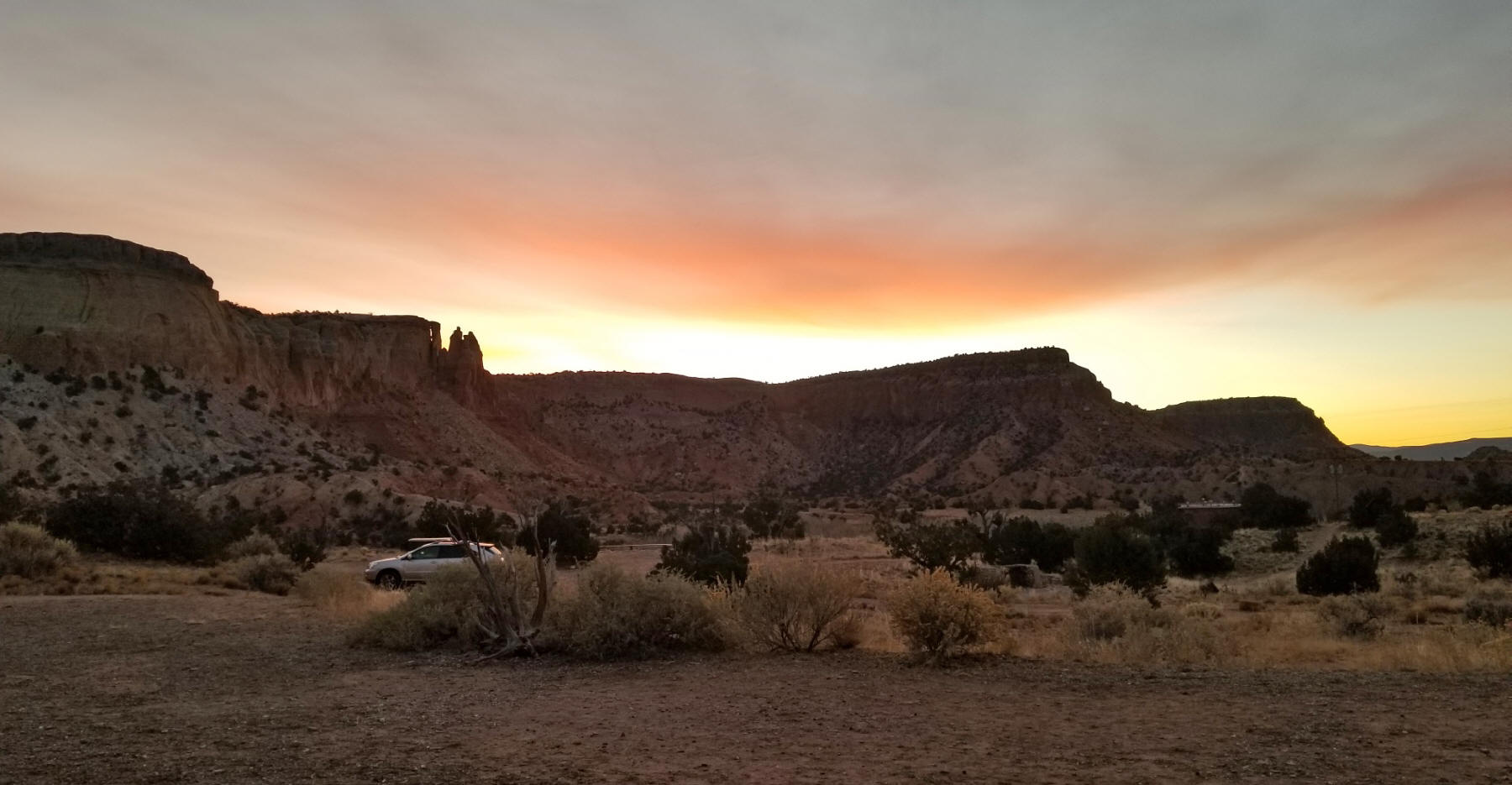|
Step into Prehistoric Times at Fernbank
Museum
Story and Photos
by Kathleen Walls
On a recent trip to Atlanta for a
Southeast Tourism
Society Marketplace, I revisited Fernbank Museum of Natural
History. This museum is a trip back in time to pre-humanoid
eras. You get a view of our earth and the earliest creatures
that roamed it before us humans began changing it.
Dinosaur Plaza

We parked in the side lot.
Fernbank is one of
the few Atlanta attractions with free parking. I approached the
front entrance through Fernbank's Rain Garden and was greeted by
bronze sculptures of dinosaurs. They are a subspecies of the
hadrosaur known as Lophorhothon atopus that lived in
Georgia during the Cretaceous Period before the earliest humans
evolved. The dinosaurs are a family, the mother, the larger
center one, is Georgia. The two juveniles besides her are Haddie
and Ferny.
Great Hall
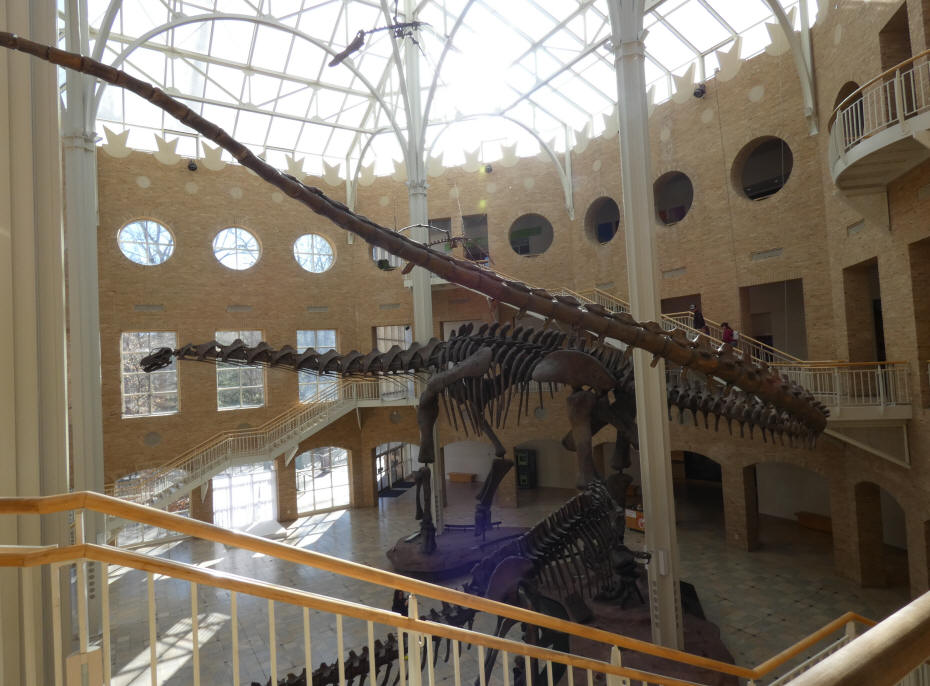
We stepped into the second floor of the
museum and looked down at the Great Hall, which hosts Giants
of the Mesozoic Exhibit. The exhibit centerpiece is a
100-ton Argentinosaurus fossil skeleton. It's almost impossible
to capture a shot of the entire fossil, but the photos above
captures most of it. The Great Hall is filled with skeletons of
giant dinosaurs; Giganotosaurus, who was four-feet longer than
Tyrannosaurus rex with a 6-foot-long skull; Anhanguera, a flying
reptile, nicknamed "Old Devil"; a flock of 21 Pterodaustroa, a
smaller flying reptile that roamed the earth between 145 to 165
million years ago.
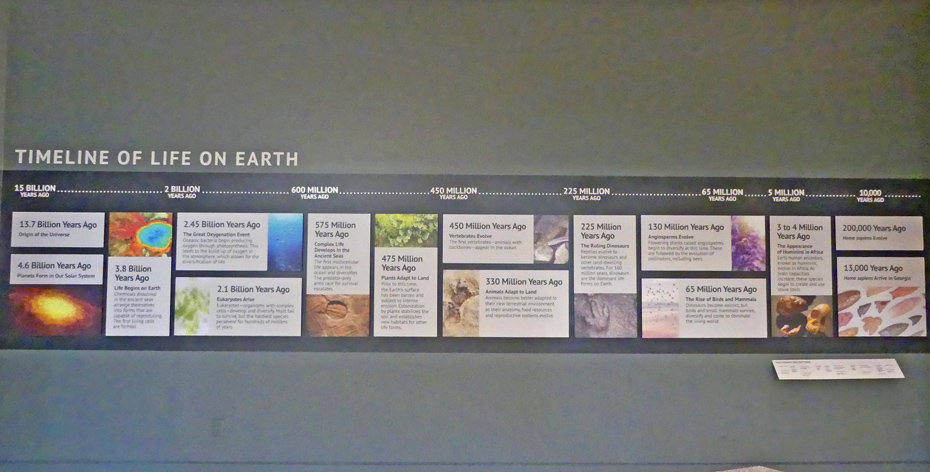
The museum has a timeline of the earth and
solar system from its beginnings. The fact that earliest life
began about 3.8 billion years ago but the first humanoid
creatures didn't evolve until around 2 to 3 million years ago,
makes me feel insignificant. Our own direct ancestors, Homo
Sapiens, only developed a mere 200 thousand years ago. While
these dinosaurs romped around the earth over 100 million years
ago.
A Walk Through Time in Georgia
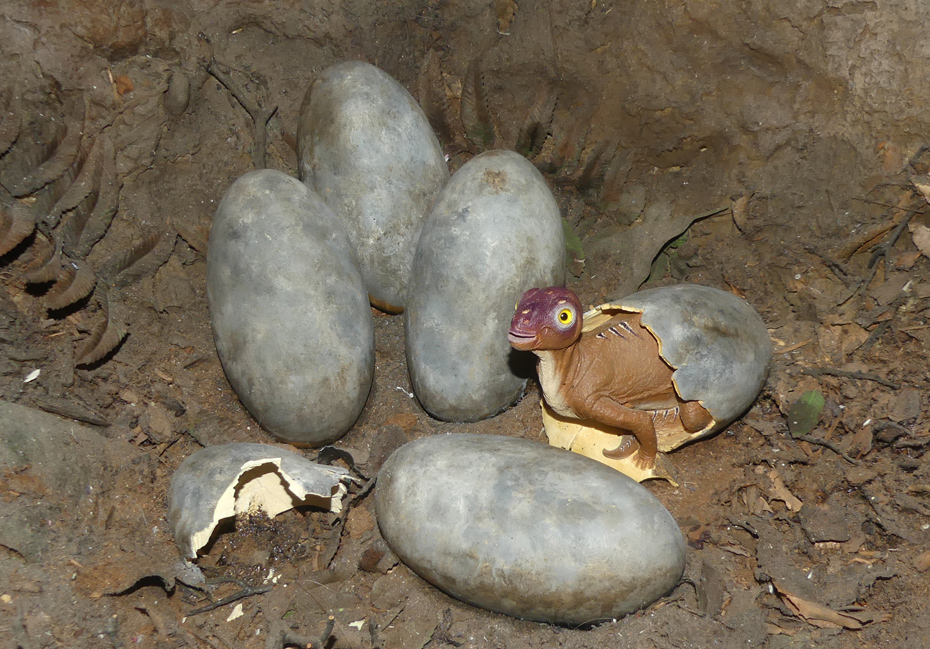
A Walk Through Time in Georgia is my
favorite exhibit. It's filled with dioramas that capture the
sights and sounds of the state's main geographic regions. The
exhibits are detailed about wildlife and plants and the
geological features that make each part of Georgia unique.
And it's not just about present-day
Georgia. Did you know dinosaurs once roamed prehistoric Georgia?
There is everything from fossil skeletons to recreations of the
giant reptiles. One is an exhibit of a cute baby dinosaur
hatching from an egg. There is even a replica of a fossilized
dinosaur footprint.
Conveyed in Clay

Ancient pottery is one of archaeology's
best tools to determine time and culture. Once it is shaped and
fired, it is almost indestructible and tells scientists much
about the people that created it. Conveyed in Clay
explores 5,000 years of human history. You'll see samples from
the oldest pots discovered in North America to the pottery
brought there by Spanish conquistadors.
Did you know the earliest pottery found in
the United States was from Georgia around the Savannah River?
The Convened in Clay exhibit focuses on pottery found
around St. Catherine's Iland off the coast of central Georgia
where humans have lived for around 5,000 years.
These people were hunters and gathers and
lived well, because of the abundance of fish, wildlife and
edible plants found here. They created what are known as pinch
post by combining fiber and plant material to the local clay,
hand shaping them and firing the pots. These pots, though small,
allowed them to move from the previous way of cooking by tossing
hot rocks into a skin or basket to heat food to being able to
place the pots over a fire.
As the natives evolved into farmers, their
pottery improved. When the early Spanish arrived and began
forcing the natives into Catholicism, though they still used
their pottery traditions, they began copying Spanish and other
European pottery. One interesting fact is the use of red color
in the later pottery, but scientist are stumped as to its
meaning.
Fantastic Forces
We moved to modern in Fantastic Forces,
Fernbank's new STEM Exhibit. This one is totally interactive. We
experimented with lifting our own weight via seats with pull
ropes. It makes you feel strong, but I have to admit, I couldn't
raise myself too high. Another exhibit lets you use a pulley
connected at two different centers of gravity. Amazing the
difference it makes when you try to move the same object here.

One of my favorites was where you use your
hand's own electronic reaction to pull what looks like small
lightning bolts where you choose.
There are various ways to explore
combustion, aerodynamics, plate tectonics and more. All of
nature's forces become more understandable here.
Fernbank Forest
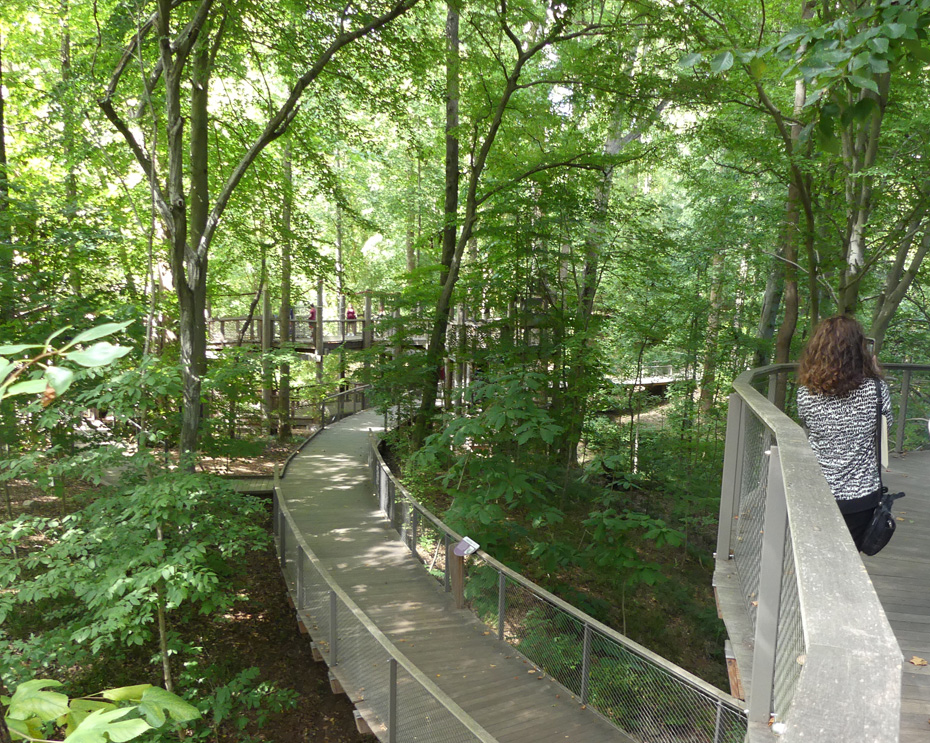
We stepped outside to get a glimpse of the
75 acres of outdoor nature adventures in WildWoods and Fernbank
Forest and, no surprise, we met another dinosaur; Stegosaurus
was crafted by Jonas Studios and perches on the deck overlooking
WildWoods.
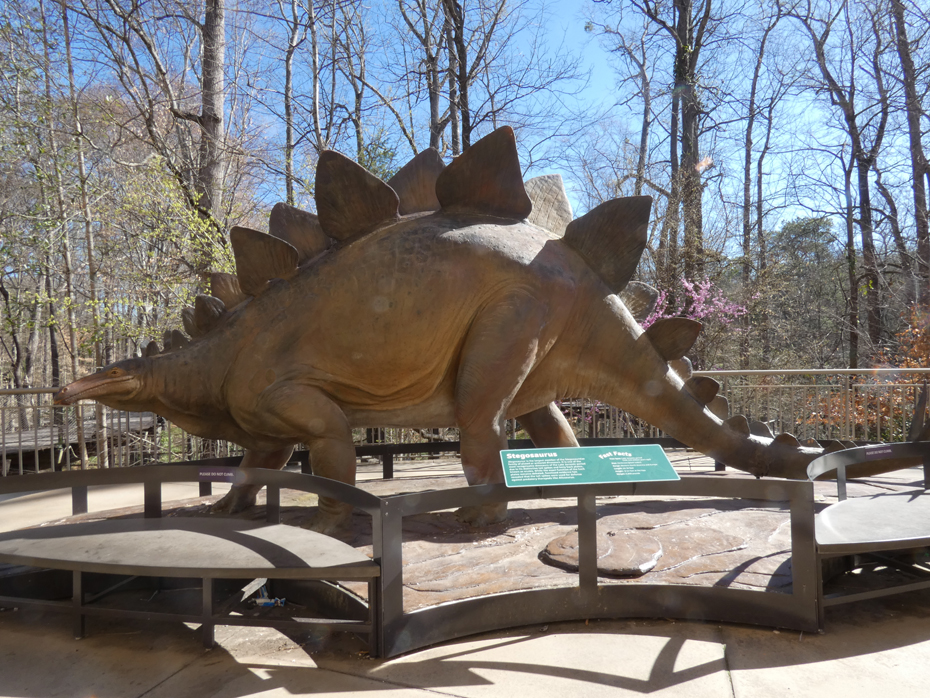
This only touches the surface, There are
other exhibits and features include an IMAX theater, a cafe and
museum store.
Pro tip: Buying a
CityPASS is the best way
to see Atlanta attractions. Besides Fernbank, CityPASS gives
you access to World of Coca-Cola, Zoo Atlanta, Georgia Aquarium,
and College Football Hall of Fame. It also includes the National
Center for Civil and Human Rights, but that is temporarily
closed until the fall of 2025. The pass saves you about 49% on
admission costs.
Public
Disclosure Please Read FTC has a law
requiring web sites to let their readers know if any of the
stories are 'sponsored' or compensated. We also are to
let readers know if any of our links are ads. Most are not.
They are just a way to direct you to more information
about the article where the link is placed. We have several ads
on our pages. They are clearly marked as ads. I think
readers are smart enough to know an ad when they see one but to
obey the letter of the law, I am putting this statement here to
make sure everyone understands. American Roads and Global
Highways may contain affiliate links or ads. Further, as their
bios show, most of the feature writers are professional travel
writers. As such we are frequently invited on press trips, also
called fam trips. On these trips most of our lodging, dining,
admissions fees and often plane fare are covered by the city or
firm hosting the trip. It is an opportunity to visit places we
might not otherwise be able to visit. However, no one tells us
what to write about those places. All opinions are 100% those
of the author of that feature column.
| 
